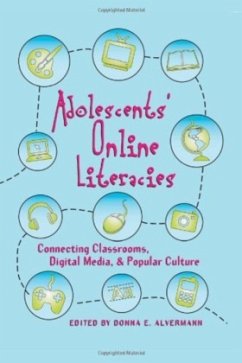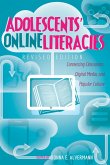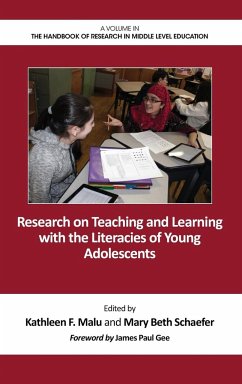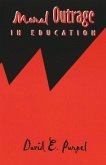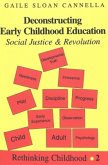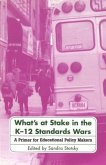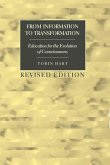By embracing a rapidly changing digital world, the so-called millennial adolescent is proving quite adept at breaking down age-old distinctions among disciplines, between high- and low-brow media culture, and within print and digitized text types. Adolescents and Literacies in a Digital World explores the significance of digital technologies and media in youth's negotiated approaches to making meaning within a broad array of self-defined literacy practices. Organized around a series of case studies, this book blends theories of an attention economy, generational differences, communication technologies, and neoliberal enactive texts with actual accounts of adolescents' use of instant messaging, shape-shifting portfolios, critical inquiry, and media production.
«Truly a far-reaching scholarly book which offers readers an array of cases, conversations, and coinages that can only help schools take the measure in the best educational sense, of the brave new culture, the new literacy, of this digital age.» (John Willinsky, University of British Columbia)
«This is exciting volume brings together forward-thinking literacy scholars and educators to think about the impact of digital technologies on the changing nature of literacy and adolescence. The writing is engaging and maintains a steady focus in both conceptual frameworks and innovative teaching approaches. This is compulsory reading for educators who wish to move beyond the old literacy and technology debates and engage instead with new ideas such as shape-shifting practices, attention economy, millennials, digital détente, cross-generational literacies, and zines. It is an important sociocultural perspective on working with adolescents in the new millennium.» (Barbara Kamler, DeakinUniversity, Melbourne, Australia)
«This is exciting volume brings together forward-thinking literacy scholars and educators to think about the impact of digital technologies on the changing nature of literacy and adolescence. The writing is engaging and maintains a steady focus in both conceptual frameworks and innovative teaching approaches. This is compulsory reading for educators who wish to move beyond the old literacy and technology debates and engage instead with new ideas such as shape-shifting practices, attention economy, millennials, digital détente, cross-generational literacies, and zines. It is an important sociocultural perspective on working with adolescents in the new millennium.» (Barbara Kamler, DeakinUniversity, Melbourne, Australia)

